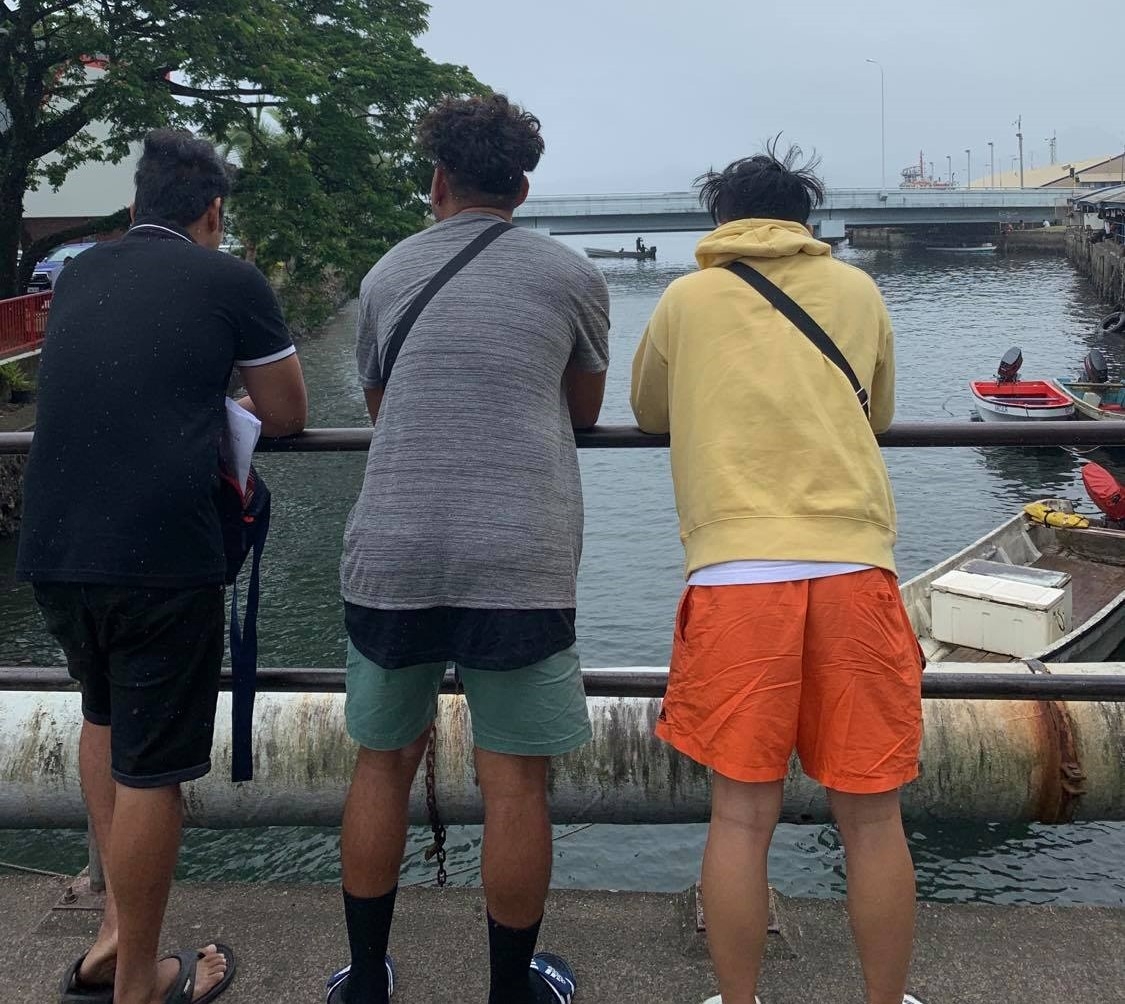Officials from Fiji’s Labour and Immigration departments and Goundar Shipping are reportedly meeting today to discuss the status of three Filipino seamen who claim they have been abandoned by their employer, and are owed back pay and fares home.
The three, who have been asked to be called by their nicknames ‘Raffy’, ‘Ace’ and ‘Sabu’ were all recruited by Goundar Shipping, which runs interisland shipping services. Raffy is an engineer and has been in Fiji since 2019. Sabu, also an engineer and Ace, a deckhand, arrived in March last year.
They say on February 12th, with the permission of their captain they left their vessel, the Lomaiviti Princess IX to speak with a representative of the International Transport Federation in Lautoka about how they could arrange passage home at the end of their contracts. But on their return to the vessel two days later, they were informed their contracts had been terminated and that they could not rejoin the vessel.
“They abandoned us in Ellington [Wharf] and we had nowhere to go,” said Luffy.
“We had to sleep in the street because Ellington Wharf and the town is a long way [apart]. So there was nowhere to go. At that time it was already ten in the evening so no more taxi, no more bus. And that’s the problem, the curfew, what if the police caught us? That would be another problem for us. So we waited for the morning and then came to Suva.”
“We don’t have any money, any food,” Ace added.
“When we can to Suva we came directly to the office [Goundar Shipping] to ask what was happening…what’s their plan. And they just said, no more, you’ve already deserted.”
“And they said, they don’t care us anymore,” said Sabu.
“I told the president of the company sir if you are going to terminate us, then you should send us home. They said you find your own way to go home. We can’t do anything.”
When Islands Business called Goundar Shipping boss, George Goundar for a comment he told us, “I don’t have time for that nonsense,” adding that the company has a contract and would let the government handle the matter before ending the call.
Raffy denies he has a contract, saying it expired six months after his arrival, in September 2019. He says since then he has been working with a valid work permit, but no contract.
The men are now being cared for by community members, but their future remains uncertain.
“We don’t know what’s ahead tomorrow,” Luffy said. “We’re living in different place[s] but it’s very hard. We cannot stay in one place, one family is living there so we cannot stay there for good, so [we move] to another place again.
“Goundar has the power.”
The men all remit their earnings home.
Luffy supports his siblings, “[I am the] breadwinner for my brother and sister. We are living in one house. The problem now is how I can pay the rent.”
Ace supports his partner and child. “Right now I can’t support my son, because my son is just two years old. So every time when I get paid here, I send the money back home to buy some stuff, milk, for my baby, but now, I can’t do nothing because I have no job here and even now we don’t have enough money to support ourselves. So that’s why it’s very hard.”
Sabu supports both his parents and his sister, who is still studying. “We just want to get what is right for us.”
The men are concerned about their reputations. “We don’t know if we are blacklisted to other companies now because we have this trouble,” said Ace. “Our career is also at risk. That’s a big problem if we get blacklisted.”
They are also concerned about how the costs of returning home will be covered, for flights, quarantine both in Manila and their home island, and COVID swab tests.
The International Transport Workers’ Federation claims there are more than 20 Filipino seafarers who have been “tricked” by Goundar Shipping “into flying to Fiji to operate and maintain its fleet of passenger and cargo ferries with promises of decent wages and conditions.” ITF Inspector Sarah Mcguire, who is based in Australia, said Goundar is refusing to send them home as agreed.
“When they arrived, the company informed the seafarers that they would be paid 60-70 percent less than what they were promised,” she added. Raffy, Ace and Sabu make similar allegations about a discrepancy between the salary promised in the contract they signed in the Philippines and what they received once in Fiji.
Human Rights at Sea, an international NGO which has been working to highlight the matter remains concerned. “When speaking with the seafarers through those humanitarians providing direct welfare support in Fiji, it is clear they have been grossly let down by their employers and cast aside with little if no consideration as to the impact the loss of employment and wages will have on them and their families. Unfortunately, this is an all too familiar story. Fortunately, it has attracted international press attention without the case being fully hidden behind the corporate veil,” said Chief Executive Officer, David Hammond.
